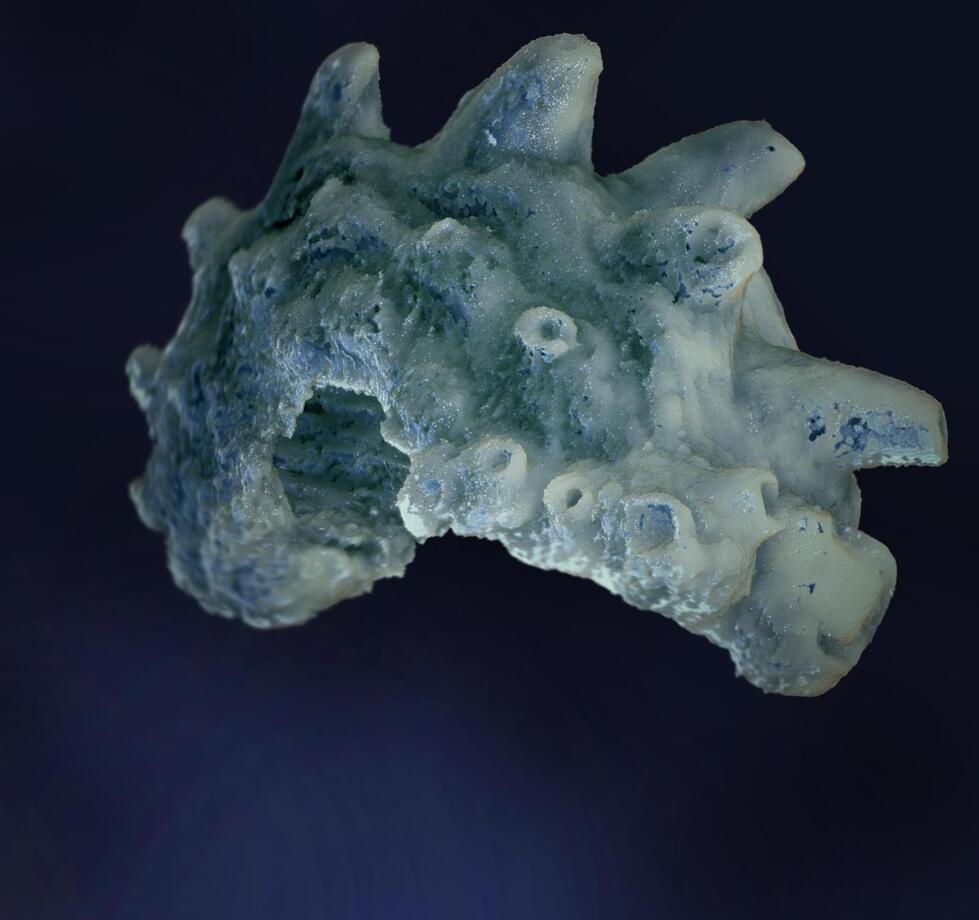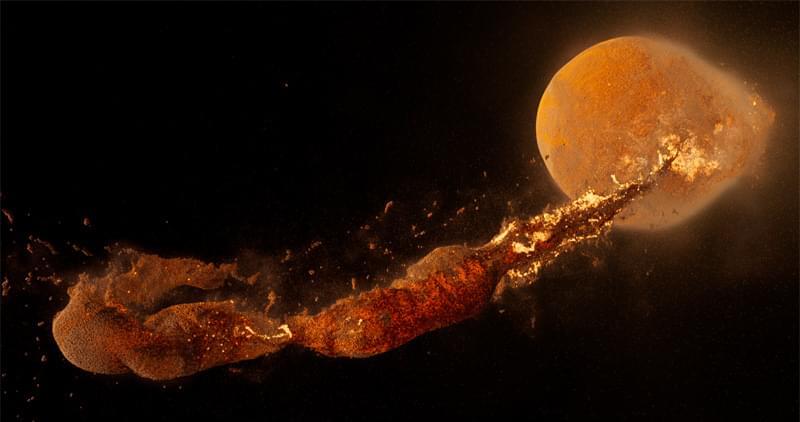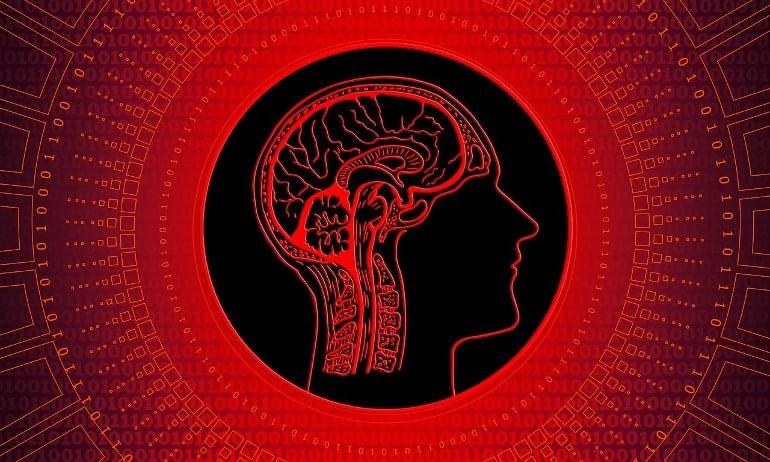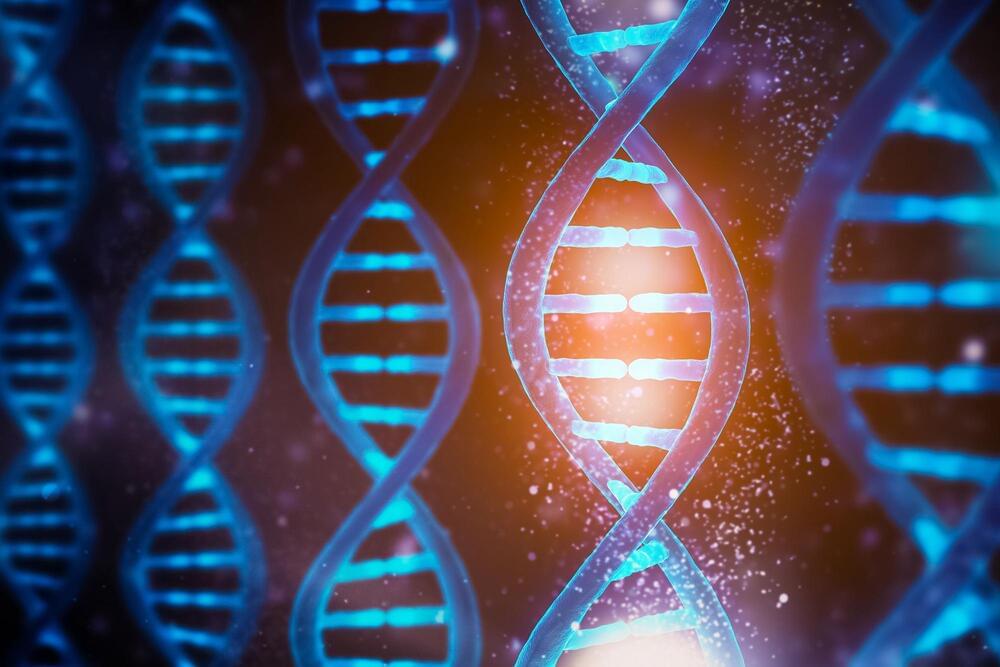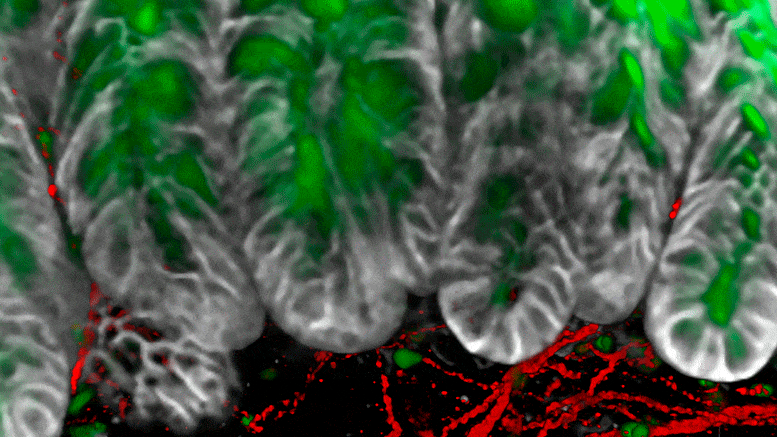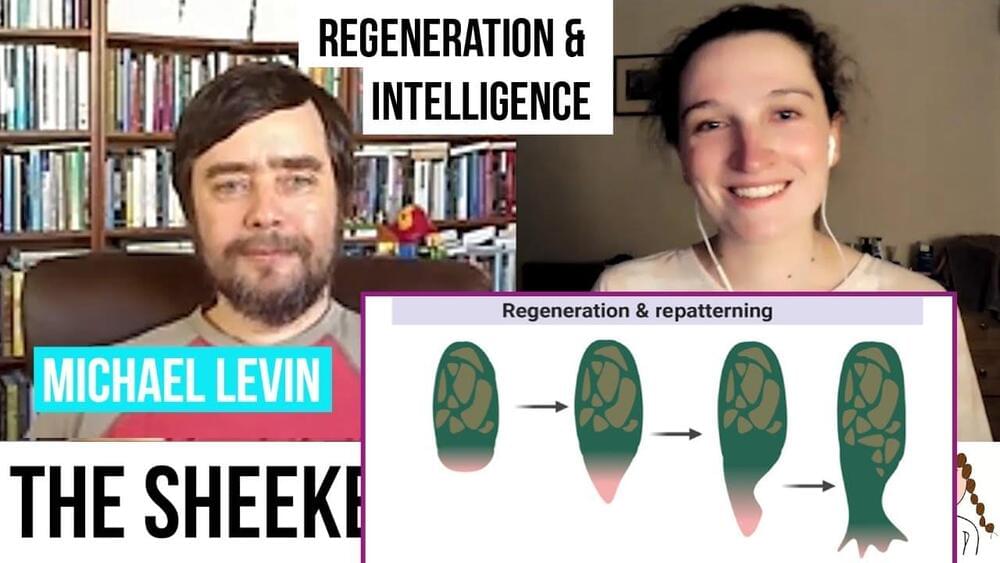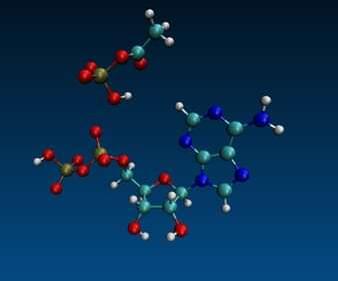
A simple two-carbon compound may have been a crucial player in the evolution of metabolism before the advent of cells, according to a new study published October 4 in the open access journal PLOS Biology, by Nick Lane and colleagues of University College London, U.K. The finding potentially sheds light on the earliest stages of prebiotic biochemistry, and suggests how ATP came to be the universal energy carrier of all cellular life today.
ATP, adenosine triphosphate, is used by all cells as an energy intermediate. During cellular respiration, energy is captured when a phosphate is added to ADP (adenosine diphosphate) to generate ATP; cleavage of that phosphate releases energy to power most types of cellular functions. But building ATP’s complex chemical structure from scratch is energy intensive and requires six separate ATP-driven steps; while convincing models do allow for prebiotic formation of the ATP skeleton without energy from already-formed ATP, they also suggest ATP was likely quite scarce, and that some other compound may have played a central role in conversion of ADP to ADP at this stage of evolution.
The most likely candidate, Lane and colleagues believed, was the two-carbon compound acetyl phosphate (AcP), which functions today in both bacteria and archaea as a metabolic intermediate. AcP has been shown to phosphorylate ADP to ATP in water in the presence of iron ions, but a host of questions remained after that demonstration, including whether other small molecules might work as well, whether AcP is specific for ADP or instead could function just as well with diphosphates of other nucleosides (such as guanosine or cytosine), and whether iron is unique in its ability to catalyze ADP phosphorylation in water.
